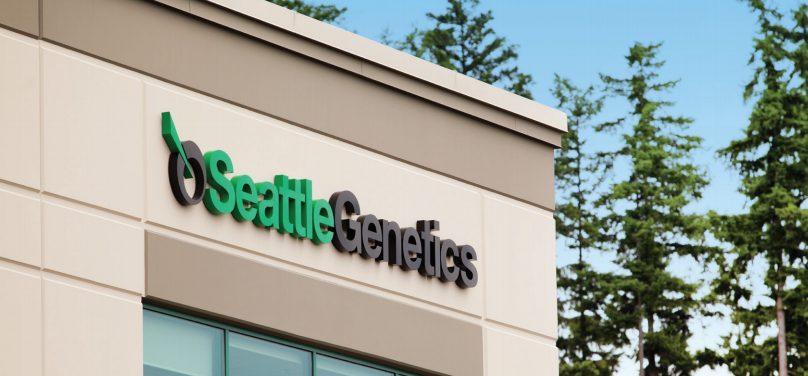Merck & Co signs multi-billion cancer drug development deal with Seattle Genetics

Merck & Co has signed a multi-billion cancer drug development deal, which will see it investing $1 billion in partner Seattle Genetics.
US-based Merck, known as MSD outside North America, will globally develop and market Seattle’s investigational antibody-drug conjugate (ladiratuzumab vedotin).
The drug zeroes in on cancer cells expressing a protein known as LIV-1 and is in phase 2 development for breast cancer and other solid tumours.
The partnership will see the companies pursuing a joint development programme testing ladiratuzumab vedotin as monotherapy and in combination with Merck anti-PD-1 therapy Keytruda (pembrolizumab) in triple-negative breast cancer, hormone receptor-positive breast cancer, and other LIV-1 expressing solid tumours.
Seattle Genetics will receive a $600 million upfront payment and Merck will make a $1.0 billion equity investment in 5.0 million shares of Seattle Genetics common stock at a price of $200 per share.
Seattle could receive progress-dependent milestone payments of up to $2.6 billion, making for a total possible payout for Seattle from the ladiratuzumab vedotin collaboration of $4.2 billion.
The companies will jointly develop and market the drug worldwide and equally share profits, with Seattle Genetics responsible for filings in the US and Canada and recording sales in the US, Canada and Europe.
MSD will be responsible for ex-US filings including Europe and will record sales outside the US, Europe, and Canada.
Like many of Seattle’s drugs ladiratuzumab vedotin is an antibody-drug conjugate, which works by targeting a protein commonly found on the surface of a cancer and then delivering a lethal payload that is absorbed by the cell and kills it.
LIV-1 is a zinc transporter that is regulated by oestrogen and present in increased amounts in oestrogen-receptor positive breast cancer as well as in tumours that have spread to the lymph nodes.
Merck has also picked up an exclusive licence to develop and market Seattle’s Tukysa (tucatinib) for HER2-positive cancers in Asia, the Middle East and Latin America, and other regions outside of the US, Canada and Europe.
From this second agreement Seattle Genetics will receive $125 million from Merck as an upfront payment and is eligible for progress-dependent milestones of up to $65 million.













